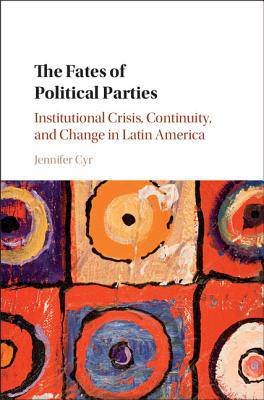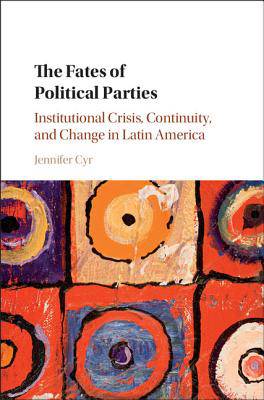
- Afhalen na 1 uur in een winkel met voorraad
- Gratis thuislevering in België vanaf € 30
- Ruim aanbod met 7 miljoen producten
- Afhalen na 1 uur in een winkel met voorraad
- Gratis thuislevering in België vanaf € 30
- Ruim aanbod met 7 miljoen producten
The Fates of Political Parties
Institutional Crisis, Continuity, and Change in Latin America
Jennifer Cyr
Hardcover | Engels
€ 125,95
+ 251 punten
Omschrijving
Political parties in the developing world often face serious electoral crises; from one election to the next, parties can be decisively voted out of national office. What happens to a party that experiences this kind of voter rejection? The literature suggests it will disappear, leaving the party system vulnerable to the inexperience of new political actors. The Fates of Political Parties offers a more nuanced perspective: focusing on a number of individual Latin American countries as well as the region as a whole, it identifies considerable variation regarding how parties survive and even revive after an electoral crisis. The book revitalizes the study of parties as complex entities that rely on a potentially diverse set of resources to remain active in politics. It demonstrates that parties can be remarkably enduring institutions; surviving and reviving parties represent instances of institutional stability. Where they endure, those parties can sustain competition and strengthen the democratic regime.
Specificaties
Betrokkenen
- Auteur(s):
- Uitgeverij:
Inhoud
- Aantal bladzijden:
- 280
- Taal:
- Engels
Eigenschappen
- Productcode (EAN):
- 9781107189799
- Verschijningsdatum:
- 9/06/2017
- Uitvoering:
- Hardcover
- Formaat:
- Genaaid
- Afmetingen:
- 157 mm x 229 mm
- Gewicht:
- 521 g

Alleen bij Standaard Boekhandel
+ 251 punten op je klantenkaart van Standaard Boekhandel
Beoordelingen
We publiceren alleen reviews die voldoen aan de voorwaarden voor reviews. Bekijk onze voorwaarden voor reviews.









